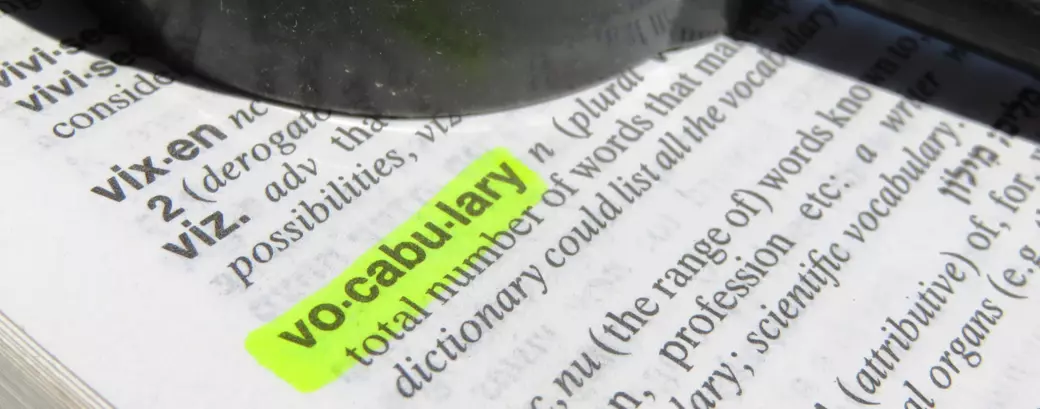Clarifying Real Estate Jargon: A Glossary for Homebuyers and Homesellers

Buying or selling a home is a significant step in anyone's life, and it often involves a complex world of real estate terminology. If you catch us using real estate jargon, please slow us down and let's make sure you're familiar with the terms. To ensure both our home buying and home selling clients are well-informed, we've compiled a comprehensive glossary of common real estate terms that will be beneficial for everyone involved in the real estate process.
Even the Federal Trade Commission has a glossary of terms they think you should know so as not to be confused during a real estate transaction. We support that sentiment whole-heartedly. You may even want to bookmark this page if you're new to homebuying or homeselling as we add to it and update it on a regular basis.
Adjustable-Rate Mortgage: An adjustable-rate mortgage (ARM) that offers a fixed rate for an initial period, typically three to ten years, and then adjusts every six months, annually, or at another specified period, for the remainder of the term. Also known as a “hybrid loan.”
Amortization [schedule]: This schedule is a very common way to break down the loan amount in the interest and the principal. Most people think that by making a minimum payment for their loan, they lower the principal amount. This depends on the duration of the loan. For example, in the beginning of the term for a long-term loan, most of the payment goes towards lowering the interest. As the term progresses, a greater percentage of the payment goes to the principal and a lower percentage goes to the interest. So, people who want to pay off their loan fast, make extra payments in the beginning of the term.
Annual Percentage Rate (APR): The cost of Appraisal: A professional analysis used a loan or other financing as an annual rate. to estimate the value of the property. This The APR includes the interest rate, points, includes examples of sales of similar propbroker fees and certain other credit charges erties. a borrower is required to pay.
Appraiser: A professional who conducts an Annuity: An amount paid yearly or at other analysis of the property, including examples regular intervals, often at a guaranteed of sales of similar properties in order to deminimum amount. Also, a type of insurance velop an estimate of the value of the proppolicy in which the policy holder makes erty. The analysis is called an “appraisal.”
Appraisal: An assessment of a property's value, typically conducted by a licensed appraiser, to determine its fair market value. Lenders use appraisals for buyer financing, and sellers may use them to set an appropriate asking price.
Appreciation: An increase in the market from the insurance company. value of a home due to changing market conditions and/or home improvements.
Bridge Loan: A short-term loan secured by the borrower’s current home (which is usually for sale) that allows the proceeds to be used for building or closing on a new house before the current home is sold. Also known as a “swing loan.”
Buydown (buy down): A financial arrangement where the homebuyer or a third party pays additional upfront fees to the lender to reduce the interest rate on the mortgage for an initial period. This can make the property more attractive to buyers or help sellers negotiate a higher selling price.
Certificate of Eligibility: A document issued by the U.S. Department of Veterans Affairs (VA) certifying a veteran’s eligibility for a VA-guaranteed mortgage loan. Also known as a COE.
Clear Title: Ownership that is free of liens, defects, or other legal encumbrances.
Clear to Close: perhaps the best three words to hear in a real estate transaction. It means that a buyer's financing has finally been approved, there are no more conditions or hurdles and the only thing left to do is to close on the property. Clear to close can be music to the ears of all parties involved.
Closing: The process of completing a financial transaction. For mortgage loans, the process of signing mortgage documents, disbursing funds, and, if applicable, transferring ownership of the property. In some areas, closing is referred to as “escrow,” but not as commonly in Colorado. See also “Settlement.”
Closing Agent (Closer): The person or entity that coordinates the various closing activities, including the preparation and recordation of closing documents and the disbursement of funds. (May be referred to as an escrow agent title closer in some areas.) In Colorado, closing is conducted by title companies.
Closing Costs: Fees and expenses associated with the purchase or sale of a home, paid at the closing (settlement) of the real estate transaction. These costs can vary and may be negotiated between buyers and sellers.
Closing Date: The date on which the sale of a property is to be finalized and a loan transaction completed. Often, a real estate sales professional coordinates the setting of this date with the buyer, the seller, the closing agent, and the lender.
Closing Statement: See “Settlement Statement.”
Co-borrower: Any borrower other than the first borrower whose name appears on the application and mortgage note, even when that person owns the property jointly with the first borrower and shares liability for the note.
Comparables: An abbreviation for “comparable properties,” which are used as a comparison in determining the current value of a property that is being appraised.
Concession: Something given up or agreed to in negotiating the sale of a house. For example, the sellers may agree to help pay for closing costs.
Contingency: A condition or requirement in a real estate contract that must be met for the contract to be binding. Common contingencies include home inspections, financing, and the sale of the buyer's current home. Sellers should be aware of these contingencies when reviewing offers.
Conventional Mortgage: A mortgage loan that is not insured or guaranteed by the federal government or one of its agencies, such as the Federal Housing Administration (FHA), the U.S. Department of Veterans Affairs (VA), or the Rural Housing Service (RHS).
Counteroffer (Counterproposal): An offer made in response to a previous offer. For example, after the buyer presents their first offer, the seller may make a counter-offer with a slightly higher sale price.
Debt-to-Income Ratio: The percentage of gross monthly income that goes toward paying for your monthly housing expense, alimony, child support, car payments and other installment debts, and payments on revolving or open-ended accounts, such as credit cards.
Deed of Trust: A legal document in which the borrower transfers the title to a third party (trustee) to hold as security for the lender. When the loan is paid in full, the trustee transfers title back to the borrower. If the borrower defaults on the loan the trustee will sell the property and pay the lender the mortgage debt.
Down Payment: The initial payment made by the homebuyer toward the purchase of a home. Buyers must consider their down payment capability, and sellers should factor it in when evaluating offers.
Earnest Money: A deposit made by the homebuyer to demonstrate their seriousness and commitment to purchasing the property. Sellers should consider earnest money as a sign of buyer commitment and financial readiness.
Encroachment: The intrusion onto another’s property without right or permission.
Encumbrance: Any claim on a property, such as a lien, mortgage or easement. Typically a term used when speaking of title.
Equity: The difference between the current market value of a property and the outstanding balance of the mortgage on the property. Sellers should be aware of their equity when determining their asking price.
Escrow: An account held by a third party (often an escrow company) that holds funds and documents related to a real estate transaction until all conditions of the sale are met. Sellers should cooperate with the escrow process to ensure a smooth transaction.
Escrow Account: An account that a mortgage servicer establishes on behalf of a borrower to pay taxes, insurance premiums, or other charges when they are due. Sometimes referred to as an “impound” or “reserve” account.
Exclusive Right-to-Sell Listing: (listing contract) The traditional kind of listing agreement under which the property owner appoints a real estate broker (known as the listing broker) as exclusive agent to sell the property on the owner’s stated terms, and agrees to pay the listing broker a commission when the property is sold, regardless of whether the buyer is found by the broker, the owner or another broker. This is the kind of listing agreement that is commonly used by a listing broker to provide the traditional full range of real estate brokerage services. If a second real estate broker (known as a selling broker) finds the buyer for the property, then some commission will be paid to the selling broker.
Exclusive Right-to-Buy Contract: The Exclusive Right-to-Buy Agreement obligates the buyer to pay the broker if the selling broker cannot be compensated from some other source. The obligation for the seller to pay the broker a commission is a provision which benefits the buyer and is an agreement between the buyer and the seller.
Fair Market Value: The price at which property would be transferred between a willing buyer and willing seller, each of whom has a reasonable knowledge of all pertinent facts and is not under any compulsion to buy or sell.
Fannie Mae: A New York stock exchange company. It is a public company that operates under a federal charter and is the nation’s largest source of financing for home mortgages. Fannie Mae does not lend money directly to consumers, but instead works to ensure that mortgage funds are available and affordable, by purchasing mortgage loans from institutions that lend directly to consumers.
Federal Housing Administration (FHA): An agency within the U.S. Department of Housing and Urban Development (HUD) that insures mortgages and loans made by private lenders.
FHA-Insured Loan: A loan that is insured by the Federal Housing Administration (FHA) of the U.S. Department of Housing and Urban Development (HUD).
First Mortgage: A mortgage that is the primary lien against a property. See also Second Mortgage to understand the relationship.
First-Time Home Buyer: A person with no ownership interest in a principal residence during the three-year period preceding the purchase of the security property.
Fixed-Rate Mortgage: A mortgage with an interest rate that does not change during the entire term of the loan.
Foreclosure: A legal action that ends all ownership rights in a home when the homebuyer fails to make the mortgage payments or is otherwise in default under the terms of the mortgage.
General Contractor: A person who oversees a home improvement or construction project and handles various aspects such as scheduling workers and ordering supplies. Gift Letter: A letter that a family member writes verifying that s/he has given you a certain amount of money as a gift and that you don’t have to repay it. You can use this money towards a portion of your down payment with some mortgages.
Good-Faith Estimate: A form required by the Real Estate Settlement Procedures Act (RESPA) that discloses an estimate of the amount or range of charges, for specific settlement services the borrower is likely to incur in connection with the mortgage transaction.
Government-backed Mortgage: A mortgage loan that is insured or guaranteed by a federal government entity such as the Federal Housing Administration (FHA), the U.S. Department of Veterans Affairs (VA), or rarely, the Rural Housing Service (RHS).
Home Inspection: A professional inspection of a home to determine the condition of the property. The inspection should include an evaluation of the plumbing, heating and cooling systems, roof, wiring, foundation and pest infestation.
Homeowner’s Insurance: A policy that protects you and the lender from fire or flood, which damages the structure of the house; a liability, such as an injury to a visitor to your home; or damage to your personal property, such as your furniture, clothes or appliances
Homeowner’s Warranty (HOW): Insurance offered by a seller that covers certain home repairs and fixtures for a specified period of time.
Homeowners’ Association: An organization of homeowners residing within a particular area whose principal purpose is to ensure the provision and maintenance of community facilities and services for the common benefit of the residents.
HELOC (Home Equity Line of Credit): A type of revolving loan, that enables a home owner to obtain multiple advances of the loan proceeds at his or her own discretion, up to an amount that represents a specified percentage of the borrower’s equity in the property.
Income Property: Real estate developed or purchased to produce income, such as a rental unit.
Inflation: An increase in prices. See also Bidenomics or Jimmy Carter.
Interest Rate: The percentage of the loan amount that the lender charges for borrowing the money. Sellers may need to consider how current interest rates can affect the attractiveness of their property to potential buyers.
Lien: A claim or charge on property for payment of a debt. With a mortgage, the lender has the right to take the title to your property if you don’t make the mortgage payments.
Loan Origination: The process by which a loan is made, which may include taking a loan application, processing and underwriting the application, and closing the loan.
Loan Origination Fees: Fees paid to your mortgage lender or broker for processing the mortgage application. This fee is usually in the form of points. One point equals one percent of the mortgage amount.
Lock-In Rate: A written agreement guaranteeing a specific mortgage interest rate for a certain amount of time.
Loan-to-Value Ratio (LTV): The ratio of the mortgage amount to the appraised value or purchase price of the property. A higher LTV ratio may require mortgage insurance and could affect a buyer's ability to secure financing.
Market Value: The current value of your home based on what a purchaser would pay. An appraisal is sometimes used to determine market value.
Multiple Listing Service (MLS): A clearinghouse through which member real estate brokerage firms regularly and systematically exchange information on listings of real estate properties and share commissions with members who locate purchasers. The MLS for an area is usually operated by the local, private real estate association as a joint venture among its members designed to foster real estate brokerage services.
Mortgage: A loan used to finance the purchase of real estate. Sellers may need to work with buyers to ensure the mortgage process proceeds smoothly.
Offer: A formal bid from the home buyer to the home seller to purchase a home.
Open House: When the seller’s real estate agent opens the seller’s house to the public. You don’t need a real estate agent to attend an open house.
Owner [Seller] Financing: A transaction in which the property seller provides all or part of the financing for the buyer’s purchase of the property.
Owner-Occupied Property: A property that serves as the borrower’s primary residence.
Personal Property: Any property that is not real [estate] property. Usually refers to belongings of a seller that aren't sold with the property or house.
PITI: An acronym for the four primary components of a monthly mortgage payment: principle, interest, taxes, and insurance (PITI).
Points: In the simplest terms, a point is one percent of the amount of the mortgage loan. For example, if a loan is made for $50,000, one point equals $500. Fees paid to the lender at closing to reduce the interest rate on the mortgage. Sellers should be aware of how points can influence buyers' offers and closing costs. Points, can also known as discount points, used to lower your interest rate in exchange paying for an upfront fee. Lender credits lower your closing costs in exchange for accepting a higher interest rate. These terms can sometimes be used to mean other things. “Points” is a term that mortgage lenders have used for many years. If you hear this term, be sure to ask your lender what they mean when they say "points."
Power of Attorney: A legal document that authorizes another person to act on one’s behalf. A power of attorney can grant complete authority or can be limited to certain acts and/or certain periods of time.
Pre-Approval: A process by which a lender provides a prospective borrower with an indication of how much money he or she will be eligible to borrow when applying for a mortgage loan. This process typically includes a review of the applicant’s credit history and may involve the review and verification of income and assets to close. Sellers may prefer offers from pre-approved buyers as they are more likely to secure financing. Confusing as it can be, this term is not to be confused or used interchangeably with pre-qualified or pre-qualification or the slang, pre-qual letter. These are disctinctly different terms.
Pre-Approval Letter: A letter from a mortgage lender indicating that you qualify for a mortgage of a specific amount. It also shows a home seller that you’re a serious buyer.
Pre-Qualification: A preliminary assessment by a lender of the amount it will lend to a potential home buyer. The process of determining how much money a prospective home buyer may be eligible to borrow before he or she applies for a loan. Pre-qualification is one of the first steps in obtaining pre-approval.
Pre-Qualification Letter: A letter from a mortgage lender that states that you’re pre-qualified to buy a home, but does not commit the lender to a particular mortgage amount.
Principal: The initial amount borrowed in a mortgage loan, excluding interest. Sellers should understand how the principal balance affects their proceeds from the sale.
Purchase Agreement/Offer: A document that details the price and conditions for a transaction. In connection with the sale of a residential property, the agreement typically would include: information about the property to be sold, sale price, down payment, earnest money deposit, financing, closing date, occupancy date, length of time the offer is valid, and any special contingencies.
Radon: A toxic gas found in the soil beneath a house that can contribute to cancer and other illnesses.
Real Property: Land and anything permanently affixed thereto — including buildings, fences, trees, and minerals. In other words, real estate.
Recording: The filing of a lien or other legal documents in the appropriate public record.
Refinance: Getting a new mortgage with all or some portion of the proceeds used to pay off the prior mortgage.
Right of First Refusal: A provision in an agreement that requires the owner of a property to give another party the first opportunity to purchase or lease the property before he or she offers it for sale or lease to others.
Second Mortgage: A mortgage that has a lien position subordinate to the first mortgage.
Secondary Mortgage Market: The market in which mortgage loan and mortgage-backed securities are bought and sold.
Seller-Rentback: A transaction in which the buyer leases the property back to the seller for a specified period of time.
Settlement: The process of completing a loan transaction at which time the mortgage documents are signed and then recorded, funds are disbursed, and the property is transferred to the buyer (if applicable). Also called closing or escrow in different areas. In Colorado, settlement is referred to as closing. See also “Closing”
Settlement Statement: A document that lists all closing costs on a consumer mortgage transaction.
Sweat Equity: A borrower’s contribution to the down payment for the purchase of a property in the form of labor or services rather than cash.
Survey: A precise measurement of a property by a licensed surveyor, showing legal boundaries of a property and the dimensions and location of improvements. There are many different types of surveys you could encounter in a real estate transaction. We recommend visiting our survey category for additional information about surveys here on our blog.
Title: The right to, and the ownership of, property. A title or deed is sometimes used as proof of ownership of land.
Title Insurance: An insurance policy that protects both buyers and sellers against any legal issues or disputes regarding the property's title, such as undisclosed liens or ownership claims.
Transfer Tax: State or local tax payable when title to property passes from one owner to another.
Truth-In-Lending Act (TILA): A federal law that requires disclosure of a truth-in-lending statement for consumer credit. The statement includes a summary of the total cost of credit, such as the annual percentage rate (APR) and other specifics of the credit.
Underwriting: The process by which a lender evaluates a buyer's financial information, credit history, and the property being purchased to determine whether to approve or deny a mortgage application. Sellers should be prepared for this step in the buying process.
VA Loan: A mortgage loan that is guaranteed by the U.S. Department of Veterans Affairs (VA).
Walk-Through: A common clause in a sales contract that allows the buyer to examine the property being purchased at a specified time immediately before the closing, for example, within the 24 hours before closing.
Whether you're a buyer or a seller, understanding these common real estate terms will empower you to make informed decisions and navigate the real estate market with confidence. Be sure to consult with your real estate agent or attorney to ensure you fully comprehend the implications of these terms on your specific transaction. If there are others we should add, drop us a comment below.
Categories
- All Blogs (61)
- advice (18)
- broomfield colorado (1)
- buying land (1)
- client experience (8)
- colorado (11)
- commerce city colorado (2)
- denver metro area (12)
- ELEVATE newsletter (14)
- FAQs (1)
- firestone colorado (1)
- first-time homebuyers (8)
- foothills properties (1)
- for buyers (1)
- for sellers (9)
- home improvements (1)
- home valuation (1)
- homebuyers (21)
- homebuying in 2024 (11)
- inflation (4)
- interior design & decor (1)
- investing/investors (3)
- land surveys (2)
- local news (11)
- market updates (2)
- matt thomas (3)
- monthly housing updates (7)
- mortgage interest rates (13)
- mortgage lending (8)
- mountain properties (1)
- moving (2)
- national news (9)
- negotiations (2)
- open houses (1)
- opinion (2)
- press release (3)
- property management (2)
- property taxes (2)
- radon (1)
- ReaL Broker (2)
- relocating (4)
- remote homebuying (1)
- rentals (1)
- renting (1)
- senior homeowners (2)
- showings (3)
- the altitude group (4)
- thornton colorado (3)
- videos (4)
- vocabulary (4)
Recent Posts










GET MORE INFORMATION

Consultant | Broker Associate | FA100030130
